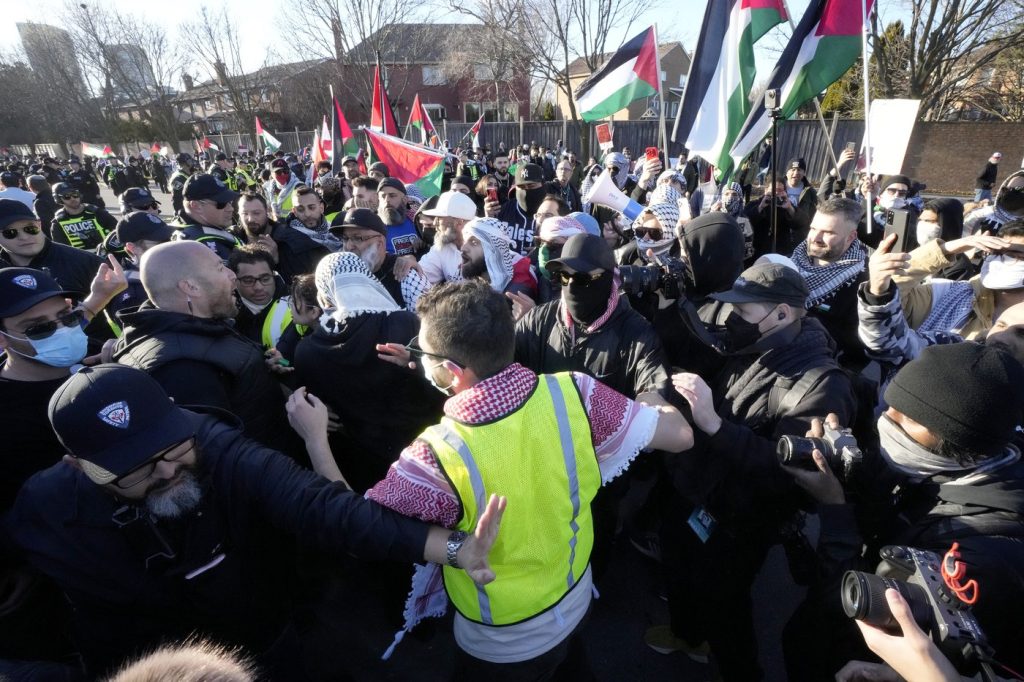OTTAWA – Justice Minister Sean Fraser has announced that the Liberal government will move forward with proposed new criminal provisions that address the obstruction of access to places of worship, schools, and community centers. These measures, which were part of the commitments made during the recent federal election campaign, aim to establish a criminal offense specifically for those who wilfully intimidate or threaten individuals attending events at these venues.
This announcement comes amidst growing tensions within Canadian communities due to public protests, which have been significantly impacted by the ongoing hostilities in the Middle East. Several municipalities across Canada have recently implemented "bubble zones" to limit protest activities near religious institutions, educational establishments, and childcare centers.
Fraser emphasized the importance of the federal government’s role in identifying and legislating over behaviors that cross a criminal threshold. He acknowledged the challenges faced by various religious communities in Canada, including rising incidents of antisemitism and Islamophobia. "People need to know that in Canada they are free to pray to the God of their choice and to, at the same time, freely express themselves," Fraser stated, "but not to the point where you threaten the protected Charter rights of a religious minority."
However, the proposed measures have met with skepticism from civil libertarians who argue that current laws are sufficient to address these issues. James Turk, the director of the Centre for Free Expression at Toronto Metropolitan University, questioned the necessity of introducing new provisions, arguing that existing laws against mischief, nuisance, and interference with religious celebrations already cover the behaviors the federal government aims to curb. He noted, “I haven’t heard a single thing that isn’t already illegal, so it’s a waste of time. It adds confusion to the Criminal Code and suggests that they’re only engaged in performative activity.”
Anaïs Bussières McNicoll, director of the fundamental freedoms program at the Canadian Civil Liberties Association, echoed Turk’s concerns. She cautioned against duplicating existing criminal offenses and stressed that protests, while potentially disruptive, are often protected by the Charter of Rights and Freedoms, which guarantees peaceful assembly. She highlighted the importance of teaching children about democracy and the role of protests in society.
In contrast, Richard Robertson, director of research and advocacy at B’nai Brith Canada, welcomed the proposed federal provisions but called for additional measures at the national level. B’nai Brith is advocating for "vulnerable infrastructure legislation" that would prohibit protests within a designated distance from places of worship and schools during specific times if they interfere with access. Robertson argued that such national legislation would eliminate the need for provinces and municipalities to enact their own laws and signal a clear stance that individuals do not possess the right to obstruct others from accessing their religious and cultural institutions.
The statement from Fraser and the subsequent discussions illustrate the contentious and multifaceted nature of balancing civil liberties with the need to protect individuals from intimidation and obstruction, particularly in the context of heated public protests.











